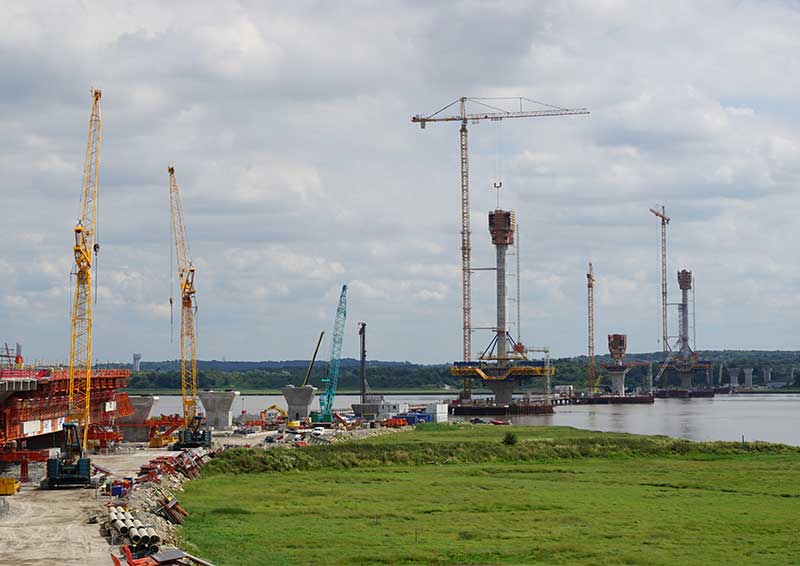PFIs and adjudication
As of 2017, the UK government's Private Finance Initiative (PFI) is now 25 years old. Introduced to change the way the public sector procures infrastructure, it has certainly achieved that aim.
PFI projects are necessarily complex in their contractual structure and the number of parties involved tends to be greater than in traditional procurement. That in turn can lead to a greater number of disputes than before and of greater complexity.
The growth in PFI activity in the 1990s and 2000s was in parallel to the developments in statutory provisions for adjudication through the HGCRA. PFI agreements are excluded from the provisions of the act through accompanying legislation, but that exclusion does not apply entirely to PFI subcontracts which are construction contracts under the act.
S.113 of the act prohibits pay-when-paid clauses which leads to an inability to fully enforce equivalent project relief provisions (ways of enforcing back-to-back risk transfer down the supply chain) by PFI project companies.
This was the situation in Midland Expressway. Project companies are typically thinly capitalised and prolonged disputes involving subcontractors and potentially the public sector authority can cause significant cash flow difficulties. Subsequent contracts legislation in 2011 eased this burden slightly but the ban on pay-when-paid remains.
These characteristics point to the usefulness of adjudication as a relatively quick form of dispute resolution in the PFI market. The joining of related disputes is a helpful feature as most disputes involve more than two parties and more than one contract.
Despite the S.113 exemption, PFI project agreements almost always contain contractual adjudication provisions for dispute resolution which tend to be closely followed by those drafting subcontracts, for example using the same panel(s) of adjudicators.
Better value from existing private finance initiatives:
The UK government's austerity measures brought in after the credit crunch led public authorities to seek better value from existing PFI agreements and this in turn has led to a significant rise in disputes under PFI contracts between authorities, project companies and subcontractors.
The factual matrix of the Portsmouth City Council highways case, while one of only a very small number to reach the courts, was typical of many other PFI projects.
Most public bodies, and probably their contractual partners, prefer to avoid the sometimes unflattering exposure brought by litigation so once again adjudication is a natural route to take given its confidentiality.
The PFI market is now mature as are many of the assets procured through its use. Lifecycle expenditure is an important consideration for project companies and their asset maintenance subcontractors.
Disputes between private sector parties about the responsibilities for asset maintenance and asset replacement are now common and are now being seen frequently in adjudications. Also common at present are disputes brought by public authorities for building defects.
The long-term nature of PFI agreements (typically at least 25 years), means that the market isn't going to disappear despite the slowness of government to develop replacement models for PFI-style projects. Whether the current propensity to disputes will continue, only time will tell.
This article was originally published here on 8 March 2017 by ICE. It was written by Patrick Waterhouse - a construction adjudicator and is on ICE's panel of adjudicators and panel of conciliators/mediators.
--The Institution of Civil Engineers
[edit] Related articles on Designing Buildings Wiki
- Articles by ICE on Designing Buildings Wiki.
- Adjudication.
- Adjudicators and bias.
- Causes of construction disputes.
- Concession agreement.
- Equivalent project relief provisions.
- Housing Grants, Construction and Regeneration Act HGRA.
- Midland Expressway Ltd v Carillion Construction Ltd & Others.
- Private finance initiative.
Featured articles and news
A case study and a warning to would-be developers
Creating four dwellings for people to come home to... after half a century of doing this job, why, oh why, is it so difficult?
Reform of the fire engineering profession
Fire Engineers Advisory Panel: Authoritative Statement, reactions and next steps.
Restoration and renewal of the Palace of Westminster
A complex project of cultural significance from full decant to EMI, opportunities and a potential a way forward.
Apprenticeships and the responsibility we share
Perspectives from the CIOB President as National Apprentice Week comes to a close.
The first line of defence against rain, wind and snow.
Building Safety recap January, 2026
What we missed at the end of last year, and at the start of this...
National Apprenticeship Week 2026, 9-15 Feb
Shining a light on the positive impacts for businesses, their apprentices and the wider economy alike.
Applications and benefits of acoustic flooring
From commercial to retail.
From solid to sprung and ribbed to raised.
Strengthening industry collaboration in Hong Kong
Hong Kong Institute of Construction and The Chartered Institute of Building sign Memorandum of Understanding.
A detailed description from the experts at Cornish Lime.
IHBC planning for growth with corporate plan development
Grow with the Institute by volunteering and CP25 consultation.
Connecting ambition and action for designers and specifiers.
Electrical skills gap deepens as apprenticeship starts fall despite surging demand says ECA.
Built environment bodies deepen joint action on EDI
B.E.Inclusive initiative agree next phase of joint equity, diversity and inclusion (EDI) action plan.
Recognising culture as key to sustainable economic growth
Creative UK Provocation paper: Culture as Growth Infrastructure.
Futurebuild and UK Construction Week London Unite
Creating the UK’s Built Environment Super Event and over 25 other key partnerships.
Welsh and Scottish 2026 elections
Manifestos for the built environment for upcoming same May day elections.
Advancing BIM education with a competency framework
“We don’t need people who can just draw in 3D. We need people who can think in data.”


























